Spätzünder
Für mich erstmal eine Überraschung, dass sich Gillian Welch und David Rawlings auf ihren anstehenden Live-Auftritten der Musik von Grateful Dead zuwenden. Ich habe einige Alben dieses Paars, das irgendwo zwischen zeitlosem Folk und neorealistscher Countrymusik eine einsame Klasse darstellt. Was aber Grateful Dead angeht, habe ich mir in ganz jungen Jahren nur ein Album von ihnen zugelegt: „Blues for Allah“. Ich war beeindruckt, aber nicht so, dass ich die Wege dieser Mythenumwobenen weiter verfolgt hätte. Die Neuauflage von „Blues For Allah“ auf Vinyl (Rhino) packte mich dann vor Wochen einmal mehr, ohne sanfte Blicke in den Rückspiegel der Zeit. Also erlaubte ich es mir, zwei Alben der „Grossartigen Toten“ zu besorgen, die mich nach einigem Stöbern besonders anlockten: einmal „Terrapin Station“, ein feines Album, das einen Hauch von „Abbey Road“ in die USA transportiert: Streichinstrumente, grosser Raum, opulente Sphären und feinsinnge Songgespinste! Das alles serviert mit den „deep americana roots“ der Gruppe.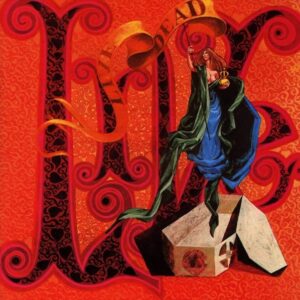
Aber das war nur ein gelungenes Vorspiel für die Wucht und Wirkung, die „Live Dead“ gestern Abend auf mich ausübte. Ich kann mir gut vorstellen, wie dieses ausufernde, wilde, hypnotische Live-Album 1969 auf die Hippie- und Underground-Kultur gewirkt hat, und beneide Lajla, dass sie die Jungs und Mädels einst in San Francisco oder wo auch immer livehaftig erlebt hat: ich staune! Und ich sehe keinen Grund, es nicht an die Seite zu stellen des mir seit 1971 bestens bekannten, immer wieder gehörten, innig geliebten „Live At Fillmore East“ der Allman Brothers. Und mittlerweile kann ich mir gut vorstellen, wie das Duo Gillian / Welche die Melodien und Essenzen der Grateful Dead filtern und verwandeln! Es wird Abende geben, da werde ich das Kerzenlicht anzünden und sehr gerne, je nach Stimmungslage, eines dieser drei Alben aus dem Regal holen. Verdammt gute tiefe Musik. Räucherstäbchentauglich, wenn mir diese kleine „Regression im Dienste des Ichs“ erlaubt wird! (m.e.)
Ich verkaufe den „heiligen Gral“ des Herrn Roedelius
Das ist einer dieser Ausdrücke, die sich in den Musikjournalismus eingeschlichen haben, wenn man von der Höhepunkt eines Lebenswerkes spricht, manchmal ist das „common sense“, manchmal Geheimtip. Ich biete nun den „heiligen Gral“ von Hans Joachim Roedelius an, für 300 Euro. Ich verkaufe dieses „Opus magnum“ (noch so ein beliebter, etwas zu oft verwendeter Ausdruck) nur an Leute, die eine enge Beziehung zur Musik von Roedelius haben. Bei Discogs findet sich derzeit noch ein Exemplar für 200 Euro, ansonsten beläuft sich der Handelswert bis 400, 500 Euro aufwärts.

Zu meinem Verkaufsservice kommt aber etwas hinzu: ich bringe diese Schatzkiste mit drei Lps (und den beiliegenden Cds derselben Musik persönlich vorbei (mit meinem Toyota erreiche ich jeden Ort in Deutschland von NRW aus innerhalb von acht Stunden) incl. einer kostenfreie Übernachtung in einem Gästezimmer und einem gemeinsamen Abendessen (in einem Restaurant Ihrer Wahl, oder zuhause). Als besondere „Dienstleistung“ biete ich einen langen Abend voller Musikgespräche an, die natürlich stets weit über Musik hinausführen können.Bei dieser lang vergriffenenen, numerierten Sonderedition handelt es sich un einen umfassenden Einblick in die Tonskizzen, Miniaturen, Improvisationen von HJR, die an jenem legendären Ort in Forst, Niedersachsen, entstanden sind, als Moebius, Roedelius und Rother zusammenarbeiteten und als Harmonia spannende Alben in die Welt setzten, ganz zu schweigen von frühen Werken von Cluster sowie Cluster & Eno. Natürlich handelt es sich bei diesem Boxset nicht um das beste Album seines Lebens, vielmehr um einen spannenden Einblick in das Entwickeln von Klangideen, welche später im Studio in Weilerswist, aber auch in Forst letzte Gestalt annahmen.
Insofern ist „Tape Archives“, wenngleich kein „heiliger Gral“, kein „opus magnum“, so doch eins rundum interessantes, hervorragend gestaltetes Dokument, das eine ganz eigentümliche Sogkraft entfaltet, und das ich allein deshalb zum Verkauf anbiete, weil ich es damals, nach meinem „open air-Seminar“ über Eno, Cluster und Harmonia vor Ort, also in der Nähe von Forst, von zwei (!) TeilnehmerInnen geschenkt bekam. HIER mein damaliger Einladungstext! Contact: 0157 30765064 / email: micha.engelbrecht@gmx.de (die Kommentarfunktion ist geschlossen, alle Anfragen werden diskret behandelt).
(Michael Engelbrecht)
Monthly Revelations (February)
album JONATHAN RICHMAN: ONLY FROZEN SKY ANYWAY
talk STEVE REICH: CONVERSATIONS
archive MORTON FELDMAN: ROTHKO CHAPEL / FOR FRANK O‘HARA
prose CARLOS CASTANEDA: DAS WIRKEN DER UNENDLICHKEIT
film PASSGIERE DER NACHT
television ALL HER FAULT
radio DIE MINNEAPOLIS-KATHMANDU CONNECTION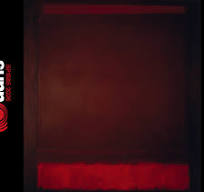
(das Albumcover liegt mir schon in sechs audio files vor. Die dazugehörige Musik wird im April mit grosser Wahrscheinlichkeit a) das Album des Monats sein und b) als letztes Stück meiner Klanghorizonte Ende Mai erklingen. Die liner notes stammen von Robert MacFarlane.)
In memory of Ralph Towner
Es ist Teil der Trauer und der Würdigung für viele, wenn einer von unseren Lebensbegleitern in Sachen Musik den Planeten gewechselt hat, ein Lieblingsalbum aus dem Regal zu holen und es in aller Ruhe zu hören. Meine Wahl träfe auf „Diary“, oder „Solstice“ aus den 1970er Jahren. Oder auf „Distant Hills“ – Alben, die immer bei mir geblieben sind. Ich bemühe mich darum, ein altes Radioportrait von Ralph Towner aus dem Archiv des Senders zu besorgen. Steve Tibbetts schrieb mir noch vor wenigen Tagen von seiner ersten Begegnung mit Ralph, dazu ein anderes Mal mehr. Im folgenden Brian Whistlers Besprechung aus dem Jahre 2017 seines letten Soloalbums…
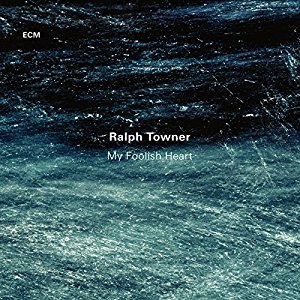
I recently saw Towner perform a stunning solo set at the SF Jazz Center. It was a remarkably fresh set from someone who has been on the scene for some 50 years. Most of the tunes came from the new album. He did play a few classics such as If and Redial. He also played a beguiling version of I Fall in Love Too Easily.At 77, Towner shows no signs of slowing down or losing his edge. He took chances during his 50 minute set, occasionally flubbing a note that he tried to grab, but then, that’s always been Ralph’s style-thank God, he doesn’t play it safe. Of course, sounding perfect on the solo classical guitar is a challenge that even many of the classical greats fall short of- I have heard Parkening blow a note and even the ever reliable Williams buzz a few on the fretboard. Not that I care personally about such nonsense. Still it makes me laugh to know Ralph’s classical guitar teacher once told him he would never make the cut as a classical guitarist-and in a way he was right: Towner is SO much more than a mere interpreter of written music-he is a major creative force. He has penned literally 100s of compositions, many of which are played by aspiring classical players. As an improviser on the nylon string he is perhaps in a class by himself.
This may very well be Towner’s strongest solo album yet. The ever prolific master has gifted us with 10 new originals, most written in his neo-classical style. His playing is in top form- indeed Towner is one of those artists who has only improved with age. What you have here is a very listenable album, a kind of rainy day music for thoughtful listeners. It is anything but background music, although I suppose it could be listened to as such-repeated listenings reveal hidden depths.
The opening piece, Pilgrim, sets the tone for this mostly introspective set. It’s all there: a strong melodic classical piece tinged with contemporary harmony and rhythm, that familiar and specific world that only Towner seems to inhabit. There are two tunes on which Ralph plays his signature 12 string. It’s great to hear that unique sound again. His reading of My Foolish Heart is as sweet and tender as Bill Evans’s classic version at the Village Vanguard, which according to Towner, was the inspiration for choosing to become a jazz musician in the first place. You can certainly feel the Evans influence here. To close out the set, he plays a remarkably complete sounding solo version of his Oregon composition, Rewind.
I just want to add that this may very well be the best recording yet of Ralph’s custom nylon string. It’s almost as if he’s playing in my living room. Towner is a bit of a reverb freak-it should be noted that his live performance was slathered with was in my opinion, way too much verb. Thankfully this is not the case on this recording, which has just the right amount of hall ambience to give the recording some needed space around the luscious notes. Kudos to Manfred Eicher and the fantastic engineers at ECM, who continues to outdo themselvs in the production department.
Towner has done it again. An instant classic.
Die Fabrik der Träume

Es gibt viele Wege, alte Zeiten zu erinnern. Eine Zeitreise durch die Alben von Steve Tibbetts brachte Erinnerungen mit sich an mein erstes Hören seiner Musik in meiner Souterrainwohnung im Bayerischen Wald anno 1982. Man kann ja überall über Erinnerungen stolpern: als ich einmal meinem Lieblingslyriker der alten BRD zufällig im Fahrstuhl des Deutschlandfunks begegnete (er war lange Jahre Redakteur der Hörspielabteilung), zog ich freundliches Grüssen allein jedem small talk vor. Vor Tagen fiel mir ein altes Buch von ihm und seiner Frau in die Hände, „Fenster und Stimmen“ aus eben jenem Jahr 1982, in dem ich tief im Südosten eine kleine grosse Lovestory erlebte. „Die Malerin und Graphikerin Rango Bohme, einst Jürgen Beckers Lebensgefährtin, hat dieses Buch mit ihrem Bildern ermöglicht, denen, unabdingbar zugehörig die selbständigen Stimmen der Gedichte zur Seite gestellt sind“, so heisst es im interessanten, ausführlichen Klapptext des Buches. Das Gedichte haute mich schlicht um, als ich es vorgestern und gestern auf mich wirken liess, zusammen mit der Zeichnung von Rango. Jürgen Beckers Lyrik ist für mich eines der spannendsten Transportmittel für Zeitreisen durch die Jahrzehnte im alten Westdeutschland, weil sie es nie bei Abbildung und Innerlichkeit belassen, sondern erfinderisch Schicht um Schicht freilegen.
Ein Freund schrieb mir vor Tagen, dass er vor der Frage stehe, die Briefe einer alten Liebe ins Feuer zu werfen. Es war ja alles, egal wie fantastisch, letztlich auf grossen Liebeskummer hinausggelaufen bei ihm, auf den Schmerz und die Leere, die eine lang gehegte Illusion hinterlässt. Nun, diesem Club hätte ich Ende 1982 auch beitreten können. Heute Nacht fand ich mich im Traum in meiner vorübergehenden bayerischen Wahlheimat wieder, scheinbar nicht weit von dem Örtchen Arnschwang entfernt. Ich traf auf eine Gruppe rüstiger Wanderinnen, erkannte ihren leicht süddeutschen Zungenschlag. Ich fragte sie, wo denn hier der Ort Arnschwang zu finden sei. Sie sagten mir, gar nicht weit von hier, und sie würden mich ein Stück des Weges begleiten. Eine der Wanderinnen war elegant gekleidet, dezent geschminkt und wunderschön, ich fühlte mich unmittelbar von ihr angezogen. Nebeneinander wanderten und sprachen wir, auf einmal spürte ich ihre Hand in meiner. Ich war wie verzaubert und erzählte ihr etwas von meiner alten Arbeit hier und meiner abgelegenen Wohnung. Da tauchte sie auch schon vor meinen Augen auf, aber als wir den Weg rechts runter gingen, Richtung Bauerngehöft, hatte sich die Architektur der einstigen Häuserzeile komplett verwandelt – in einen riesigen Fabrikraum mit seltsaman Plakaten. Dort irgendwo habe mal mein Wohnzimmer gestanden, sagte ich ihr, und staunte nicht schlecht, als sie mir leise ins Ohr flüsterte, sie wolle mich morgen wiedersehen, aber an einem schöneren Ort. Jetzt, wo ich dies notiere, erinnert sie mich von ferne an Kathleen Hepburn, die ich vorgestern noch gesehen hatte, in Robert Zemeckis „Jagd nach dem grünem Diamanten“. Ein altmodischer Abenteuer- und Liebesfilm. Mit etwas zuviel Geballer, jeder Menge herrlichem Blödsinn und ein paar bezaubernden Szenen! Ein bisschen wie mein Traum!
On Learning to Dissect Fetal Pigs, by Renée Nicole Macklin
i want back my rocking chairs,
solipsist sunsets,
& coastal jungle sounds that are tercets from cicadas and pentameter from the hairy legs of cockroaches.
i’ve donated bibles to thrift stores
(mashed them in plastic trash bags with an acidic himalayan salt lamp—
the post-baptism bibles, the ones plucked from street corners from the meaty hands of zealots, the dumbed-down, easy-to-read, parasitic kind):
remember more the slick rubber smell of high gloss biology textbook pictures; they burned the hairs inside my nostrils,
& salt & ink that rubbed off on my palms.
under clippings of the moon at two forty five AM I study&repeat
ribosome
endoplasmic—
lactic acid
stamen
at the IHOP on the corner of powers and stetson hills—
i repeated & scribbled until it picked its way & stagnated somewhere i can’t point to anymore, maybe my gut—
maybe there in-between my pancreas & large intestine is the piddly brook of my soul.
it’s the ruler by which i reduce all things now; hard-edged & splintering from knowledge that used to sit, a cloth against fevered forehead.
can i let them both be? this fickle faith and this college science that heckles from the back of the classroom
now i can’t believe—
that the bible and qur’an and bhagavad gita are sliding long hairs behind my ear like mom used to & exhaling from their mouths “make room for wonder”—
all my understanding dribbles down the chin onto the chest & is summarized as:
life is merely
to ovum and sperm
and where those two meet
and how often and how well
and what dies there
Me and Bobby Weir
Jetzt ist my Angel gestorben. Von den Grateful Dead war er mein Hingucker, a very pretty young man. Neben dem gemütlichen, vollbärtigen Garcia wirkte Bob wie ein frisch entlassener Highschool Fellow, er war indeed der jüngste bei den Deads. Ich mochte seine Cowboy-, seine Countrysongs. Der Endlossong „Playing in the Band“ hat nicht nur mich ohne Joint high gemacht, ich habe den Genuss in Oakland im Sylvesterkonzert 1979 und dann irgendwann in den 80ern beim Konzert in Bremen voll ausgeschöpft. Wir waren eine grosse Gemeinde, wir Deadheads, tanzend wie in Trance. es waren meine schönsten Konzerte.Bob Weir stand meistens neben Garcia, manchmal trat er nach vorne, der hübsche Frontman an der R thythm Guitar. In seiner über 10 minutenlangen „Weather Report Suite“ Performance war kein Deadhead zu finden, der nicht „Let it grow, let it grow“ mitsang. Meine Lieblingssongs der Grateful Dead sind die Stücke, die von Bob Weir geprägt sind, like “ Looks like rain“, „Only a river“ „Hell in a bucket“, aus dem folgendes ,zu seinem Tod mit 78 Jahren passt: There May come a Day I will dance on your grave, if unable to dance, I will crawl across it. Ich werde in den nächsten Tagen ausschliesslich Grateful Dead hören. Morgen beginne ich mit „Don’t worry“, hier am Atlantik, phantasiere mich aber nach California.
Lajla Nizinski
„Three Blind Mice“
in the end, the structure of magic does not fail.
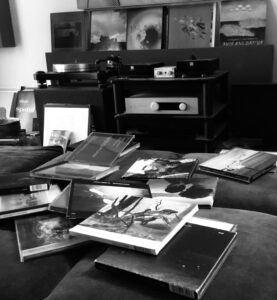
Chaos working. Wimmelbild oder Zettelwirtschaft – vorübergehend sah es genau so aus. Jetzt ist das Skript weitgehend geschrieben, und alle ECM-Alben von Steve Tibbetts finden ihren Platz, ihren Raum. Bei 54 Minuten und 38 Sekunden heisst es kürzen, verdichten, ohne an Transparenz zu verlieren. Möglicherweise fällt folgende Aufzeichnung von Steve aus seinen alten Tagebüchern aus Nepal und Bali (1991, 92) der Zeit allein zum Opfer. Es war die Zeit vor der Aufnahme seines Albums „The Fall Of Us All“.„Ich frage mich, wieso ich jeden Tag mit der Titelmelodie von „The Good, The Bad and the Ugly“ im Kopf herumwandere. Oder mit „Three Blind Mice“ oder mit „You Light Up My Life“. Ich spreche mit Keith über die Musik, die sie für die Pujas hier verwenden. Die Musik in den tibetischen Klöstern, die Hörner und die Trommeln beginnen so um 3:00 morgens. Es ist laut. Sie haben eine Sprengwirkung, sagt er. Es tickt. Ich liege im Bett. 3:00 morgens. Die Hörner und Trommeln lassen einzelne Klangsplitter erschallen, die wie ein sehr langsames „Three Blind Mice“ klingen.
4:00. Eine weitere Puja, die klingt wie die fünf Noten, die den Debbie Boone Song einleiten. 4:30. Der Haushahn von nebenan schreit die ersten Fragmente von „The Good, The Bad and the Ugly“ heraus. Ich träume zu diesem Sound, und er begleitet mich den ganzen Tag. Ich bin hier oben in Sikkim. Ich erhielt eine Sondergenehmigung. Ich stand die höllische Busfahrt durch den Osten Nepals durch und ich konnte die Songs nicht aus meinem Kopf vertreiben. Ohrwürmer.
Ich frage Choki Nyima Rinpoche, wofür die Musik in den Klöstern gedacht sei, und er erzählt mir, sie solle helfen, fixierte Konzepte schneller zu durchbrechen. Ich erzähle ihm von den „Three Blind Mice“ und wieso das nicht durchbrochen wird. Er lächelt großzügig und gibt mir einen Klaps auf den Kopf. Der Verrückte aus dem Westen!“
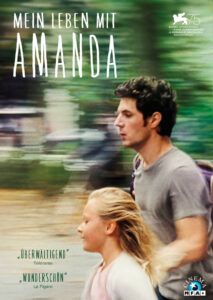
Was ich in den letzten Wochen bemerkt habe, ist, wie viel mir die Alben, alle Alben von Steve Tibbetts, bedeuten. Nach wie vor. Aber nun werde ich erst mal keine Musik mehr hören, bis die Produktion beim Deutschlandfunk im „WebMerlin“ gelandet ist. Robert Oschatz ist einmal mehr die deutsche Stimme von Steve – super! Ich bin ganz schön groggy. Und freue mich heute Abend auf den Film „Mein Leben mit Amanda“. Von Mikaël Hers, einem grossen Go Betweens-Fan übrigens. Der Vorgänger seines wunderbaren Films „Passagiere der Nacht“. Einmal lief nachts im ZDF ein alter Lieblingsfilm von mir, Jacques Rivettes „Celine und Julie fahren Boot“, im ZDF. Ich war mitten in meinem Nachtprogramm, und hatte gerade ein feines grobkörniges Stück „Ambient Music“ aufgelegt, ich weiss gar nicht mehr, von wem. Ich ging zu dem Mann im Schaltraum und bat ihn, die Tonspur des Films in mein Studio zu leiten, und dann mischte ich die Stimme von Bulle Ogier und die Sounds von Paris unter die Musik, ein paat Minuten lang. Ich empfand das als gespenstisch und ergreifend – wohl der einzige Remix, den ich je anfertigte.
KI generierte Musik
Gestern erhielt ich ein Musikvideo von einer Freundin, über das ich mich sehr freute, weil es einen Song über El Hierro enthielt. Es gibt kaum Lieder über die Insel, ausser natürlich die folkloristischen Melodien. Ich hörte mir den Song mehrmals an, weil er einen auffallend schönen Text über die Insel enthielt. Dann achtete ich auf die Filmaufnahmen, die aufgrund ihrer Farbigkeit die hiesigen Landschaften besonders attraktiv zeigen. Ich kenne alle Videos über El Hierro, aber einen so hervorragenden Film hatte ich bisher noch nicht gesehen. Ich hörte den Song mehrmals, weil ich nicht sicher wusste, ob es sich um einen Sänger oder eine Sängerin handelte. Ich fragte meine Freundin, wer der Interpret des Songs sei, sie schrieb zurück: Jorge Luis- Ich googelte, fand keinen Jorge Luis, aber einen José Luis, der über Hierro singt. Ich schaute mir seine Videoclips an, das war aber nicht der Sänger, der das wunderschöne Hierrolied sang. Meine letzte Hoffnung war Torsten de Winkel, der hier das jährliche Jazzfestival initiiert, er kennt sich in der lokalen Musikszene sehr gut aus. Er konnte sich auch nicht erklären, wer das sein könnte. Wir diskutierten zum ersten Mal die Frage, ob es sich hier um ein KI generiertes Musikstück handelt.
Ich war wie gesagt begeistert von der Qualität des Musikfilms. Ich beschäftige mich schon länger mit KI und benutze auch Chatjpd. Ich lese die Antworten kritisch und bedachtsam. Die Begegnung in der Musik ist neu für mich, auch, dass sie mich so fasziniert. Natürlich kenne ich die Bedenken was das Urheberrecht betrifft und die Konkurrenz zu der menschlich gemachten Musik.
Mich würde Eure Meinung zu diesem Thema sehr interessieren.
Lajla Nizinski